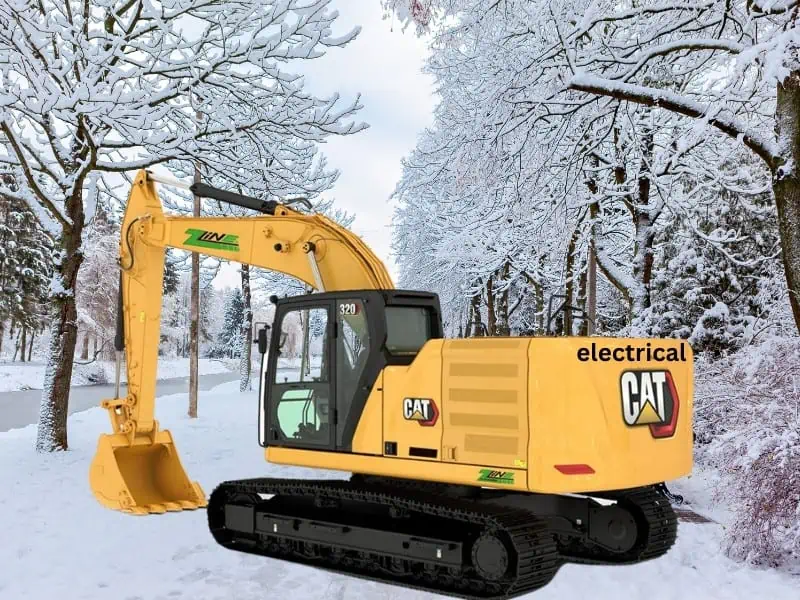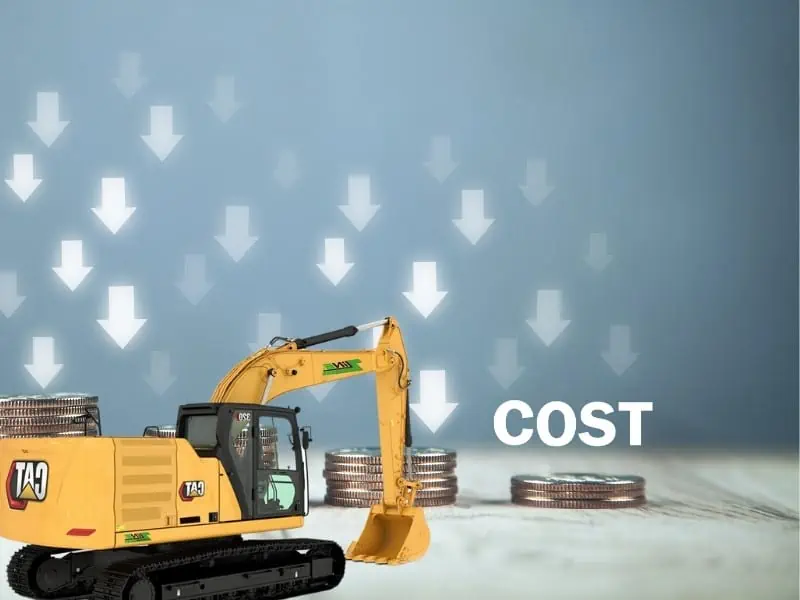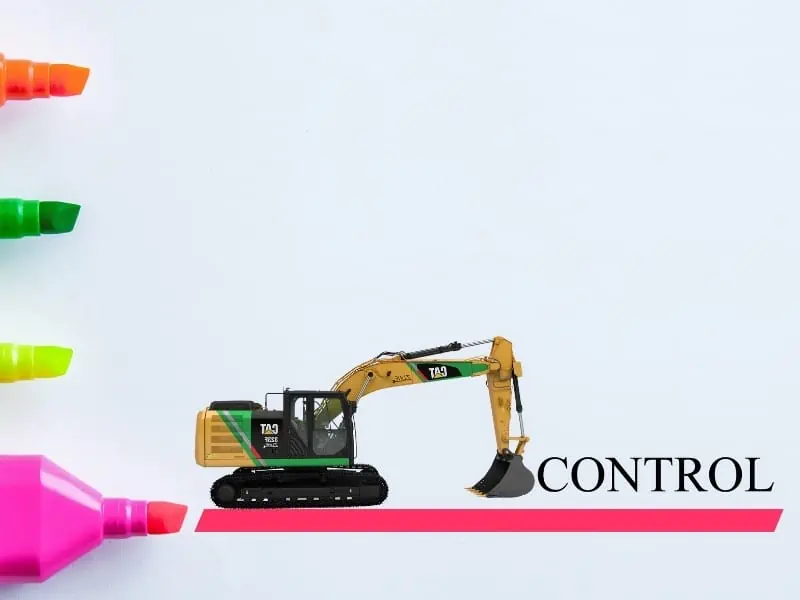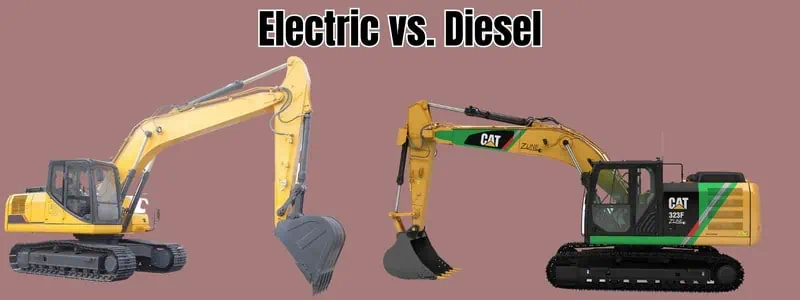Many construction machinery manufacturers are adopting electric electricity in Electric vehicles; the most significant production is building equipment makers. Here we compare Electric VS. Diesel Construction Equipment. Some of this is motivated by corporate choices to lessen the harmful effects of climate change and pollution, and some want to make their clients’ businesses more successful. Because EVs do not emit local emissions, you can use them indoors to substitute manual labor and boost output.
They can use in settings with noise restrictions because they also make less commotion. Furthermore, owners of electric-powered building tools can work on an increasing variety of tasks because they use in more applications. Electric construction machinery has several benefits over diesel-powered equipment, the capacity to equal and occasionally outperform diesel construction equipment‘s power production. There are many advantages of using electric-powered building machinery.
These years, electric building equipment is increasingly popular as an alternative to conventional diesel-powered gear in the construction sector. Some of us also think electronic building equipment is not performing as well as diesel-powered equipment; it is incorrect. The performance of electric building machinery frequently matches, and sometimes it is increased that of diesel-powered machinery.
Table of Contents
ToggleElectric Construction Equipment vs. Diesel Performance
The Benefits of Electric Construction Equipment
Energy Efficiency
Energy efficiency is a crucial advantage of electric construction equipment and is why many construction companies are switching to electric machinery. Energy efficiency is the ability of a machine or process to use energy effectively and with low waste. With more electric construction equipment, the machinery can efficiently convert the electrical energy stored in the battery into mechanical energy.

There are different reasons that electric construction equipment is more energy-efficient than diesel-powered machinery. The big reason is that electric machines have few moving parts than diesel machines, which reduces friction and energy losses. Furthermore, electric machines are designed precisely and use energy more effectively, enhancing energy efficiency.
Electric machines are also more energy-efficient because they do not waste energy as heat as diesel engines waste. Diesel engines produce a significant amount of heat as a byproduct of combustion, harming the environment. In contrast, electric machines convert electrical energy into mechanical energy without producing heat, meaning that all the energy is used.
Lower Operating Costs
Lower operating costs are another performance difference between Electric Construction Equipment vs. Diesel.

- Electric machines have few moving parts than diesel machines and need less maintenance and repairs over their lifetime. Because diesel engines come with complex components, such as pistons, injectors, and turbochargers, that require regular maintenance, cleaning, and replacements; on the other hand, electric machines have a more straightforward design with few components, So it reduces the need for maintenance and repair work.
- Electric machines do not need oil changes or other routine maintenance tasks as diesel machines need.
- Diesel engines need regular oil changes to keep them lubricated and running smoothly; it is expensive and time-consuming. Electric machines, however, do not require oil changes or other routine maintenance tasks, which can significantly reduce operating costs over the machine’s life.
- Diesel equipment machines have a short lifespan compared to electric machines. Electric machines do not produce much heat or exhaust as diesel machines, which can cause wear and tear on the engine components over time.
- Electric equipment is more energy-efficient than diesel machines. It means they need less energy to operate, reducing operating costs. Electric machines also have lower fuel costs than diesel machines, as electricity costs are lower than diesel fuel.
- Electric machines are eligible for tax credits and incentives for utilizing clean technology. It has further reduced operating costs and made electric machines a more cost-effective option for construction companies.
Reduced Noise Pollution
When we compare electric Construction Equipment vs. Diesel construction equipment performance, reduced noise pollution is another big difference between electric construction equipment. Diesel-powered construction equipment produces significant noise, disrupting workers and nearby residents. On the other hand, electric machines produce very little noise during operation, which can help reduce noise pollution and improve the working environment. Why is electric construction equipment produces less noise than diesel equipment?

- Electric machines use motors to power their operation, quieter than diesel engines. Electric equipment operates more smoothly and with less vibration than diesel engines, which can reduce the amount of noise produced during operation.
- Electric equipment does not produce loud exhaust noise like diesel engines. On the other hand, electric machines do not produce exhaust noise, which can significantly reduce the noise level.
- Electric machines can incorporate sound insulation and noise-reducing materials, reducing the noise produced during operation. It is essential for indoor construction projects or residential areas where noise pollution can be a concern.
- It can improve the working environment for construction workers by reducing the amount of noise they are exposed to during operation. It can help to reduce worker fatigue and improve job satisfaction.
- Reduced noise pollution can improve the relationship between construction companies and the surrounding community.
Environmental Benefits
Electric construction equipment offers a range of environmental benefits VS diesel-powered equipment.

- One significant environmental benefit of electric construction equipment is reducing greenhouse gas emissions. Diesel-powered equipment emits a significant amount of carbon dioxide, nitrogen oxides, and particulate matter, which harm the environment and human health. On the other hand, electric machines produce zero emissions during operation, which can significantly reduce the carbon footprint of construction projects.
- The next environmental benefit of electric construction equipment is the reduction in noise pollution that the impact of construction projects on local wildlife and ecosystems.
- Electric machines also reduce the environmental impact of construction projects by reducing the waste produced during operation. Diesel machines require regular oil changes and other maintenance tasks, which generate significant amounts of waste oil and other hazardous materials. At the same time, electric machines do not require oil changes or routine maintenance tasks, which reduces the waste produced.
- Electric construction equipment can also help to reduce the demand for fossil fuels.
- Renewable energy sources such as wind and solar power can power electric construction equipment.
Improved Control and Precision
Due to their advanced technologies and features, electric machines offer greater precision and control than their diesel-powered counterparts. Electric construction equipment is the ability to control the speed of the machine with greater precision. Electric machines use to excavate trenches or other structures with greater accuracy, reducing the need for rework and improving overall project efficiency.

Electric machines also offer improved control over the power output of the machine. Electric equipment programs deliver a consistent level of power, which can improve the quality of the work being performed and reduce the risk of errors.
Furthermore, electric construction equipment often features advanced control systems and sensors that provide real-time feedback on the machine’s performance. These systems monitor speed, torque, and power output, which can help operators optimize the machine’s performance and reduce the risk of errors. Electric construction equipment has advanced automation and telematics systems, which can provide valuable data on the machine’s performance and usage.
The Benefits of Diesel Construction Equipment
There are many benefits of diesel construction equipment
High Power Output: Diesel engines are best for high power output, making them ideal for heavy-duty tasks such as excavation or drilling.
Durability: Diesel engines are designed to last many years, even with regular use. So diesel engines are built to withstand high levels of stress and pressure.
Availability: Diesel fuel is widely available, making it easy to find and purchase. More diesel-powered machinery can be refueled quickly and easily, which is essential for tasks requiring continuous operation.
Comparing Performance: Electric vs. Diesel

Power Output: Power output is one of the most significant factors when comparing electric and diesel-powered machinery. While it is assumed that diesel engines offer more power, electric machines can match or surpass diesel machines in terms of power output.
Cost: There are several factors to consider when comparing the cost of electric and diesel-powered machinery. While electric machines may have a higher initial cost, they often have lower operating costs in the long run. Electric machines are eligible for tax credits and incentives for utilizing clean technology.
Durability: Both electric and diesel-powered machinery are designed to be durable and withstand high levels of stress and pressure. However, diesel engines are generally more durable in the long run, as they are built to last for many years.
Noise Pollution: Electric-powered machinery produces considerably less noise pollution than diesel-powered machinery. It is essential to consider projects that take place in urban or residential.
Conclusion
After the Electric VS. Diesel Construction Equipment description, both equipments have pros and cons. When you consider the construction equipment, select according to your job and budget. If you need any further detail, you can contact us.
